There are no winners in trade war, says Chinese president
Xi Jinping warns ‘bullying or hegemonism only leads to self-isolation’
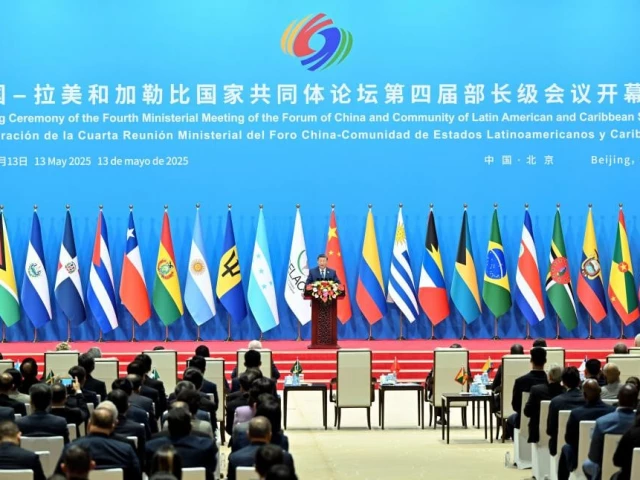
Chinese President Xi Jinping opened the Fourth Ministerial Meeting of the China-CELAC Forum on Monday with a strong call for deeper China–Latin America and Caribbean (LAC) cooperation, while warning that “there are no winners in tariff wars or trade wars.”
Speaking to a gathering of high-level delegates in Beijing, Xi positioned China and LAC nations as strategic partners in promoting global peace, development, and fairness, especially amid rising protectionism and geopolitical tensions, according to Xinhua news agency.
President Xi used the occasion to unveil a comprehensive five-point plan for expanding collaboration with the LAC region, ranging from political solidarity and economic development to cultural exchanges and security cooperation. The plan is aimed at building what the Chinese leader described as a "community with a shared future" between China and LAC countries, founded on mutual respect, openness, and common aspirations.
“Bullying or hegemonism only leads to self-isolation,” President Xi said, taking a clear stance against unilateralism and external interference in global affairs. Stressing the importance of unity and multilateral cooperation, he stressed that both China and the LAC region are vital members of the Global South, bound by shared values and historical struggles for independence and development.
Marking the 10th anniversary of the China-CELAC Forum, President Xi reflected on its evolution from “a tender sapling into a towering tree.” He welcomed delegates warmly, celebrating a decade of what he called unprecedented progress in bilateral ties, trade, and cultural exchange.
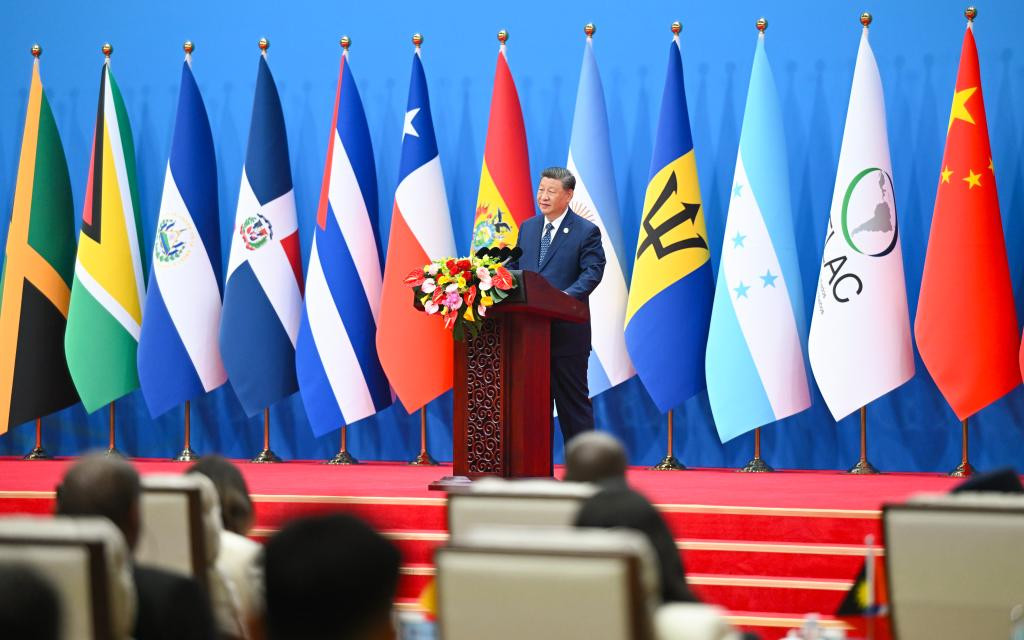
The Chinese president recalled centuries of historical interactions between China and Latin America, dating back to the 16th-century “Nao de China” ships that crossed the Pacific with goods and goodwill. Since the 1960s, and increasingly in recent decades, the two regions have forged closer diplomatic and economic ties.
President Xi reaffirmed China’s unwavering support for the sovereignty and development rights of LAC countries. He highlighted China’s consistent support for Latin American causes, such as backing Panama’s claim over its canal and advocating for maritime rights. He also noted China’s longstanding opposition to the US embargo on Cuba, having voted 32 times since 1992 in favour of ending it at the United Nations.
The Chinese president thanked LAC countries for upholding the one-China principle and pledged continued support for their independent paths to development.
Economic cooperation is at the core of the China-LAC relationship, Xi said, noting that trade between the two sides exceeded $500 billion in 2024 — a 40-fold increase since the early 2000s. Under the Belt and Road Initiative, over 200 infrastructure projects have been carried out, creating more than one million jobs in LAC countries.
Technological collaboration has also expanded, with joint satellite programs and landmark infrastructure such as Peru’s Chancay Port improving connectivity across continents. China has signed free trade agreements with Chile, Peru, Costa Rica, Ecuador, and Nicaragua.
President Xi praised the cooperation between China and LAC countries during natural disasters and the Covid-19 pandemic. Since 1993, China has sent 38 medical teams to the Caribbean and, during the pandemic, provided over 300 million vaccine doses and 40 million units of medical supplies to LAC nations.
“We unite in tough times to conquer challenges through mutual support,” the Chinese leader said, highlighting solidarity as a core principle of the partnership.
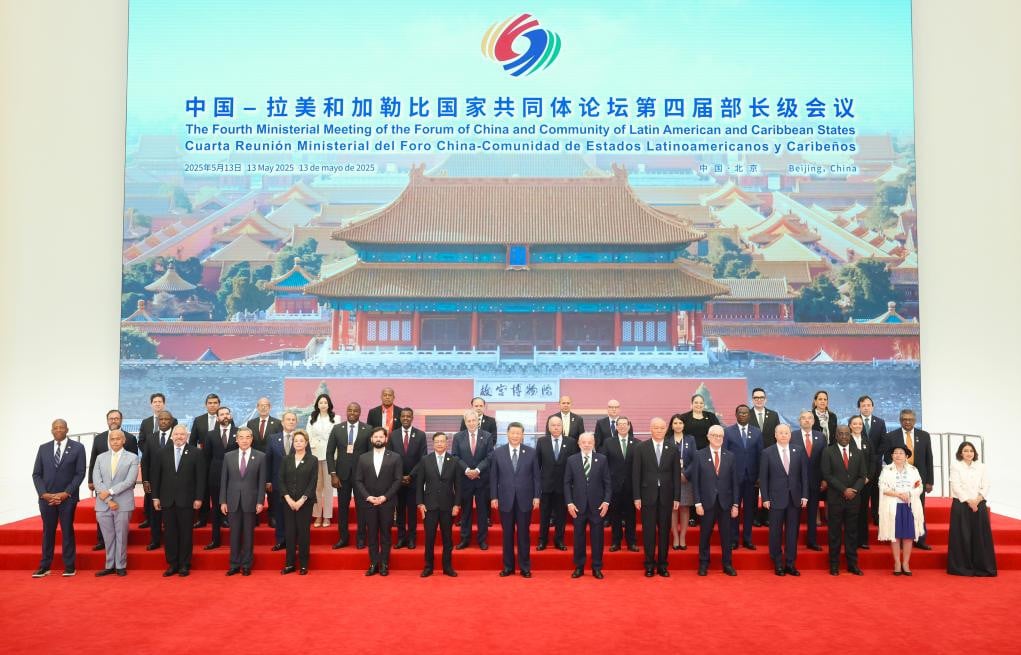
To chart the path forward, President Xi announced five major programs to guide China-LAC relations:
Solidarity program: Aimed at strengthening political trust, this program includes annual exchanges for 300 political party members from CELAC states, greater coordination on global issues, and joint advocacy for multilateralism and international law.
Development program: Focused on aligning development strategies, expanding Belt and Road projects, and increasing Chinese investment and imports from LAC. President Xi also announced a ¥66 billion credit line to support LAC development and proposed collaboration in clean energy, digital economy, and AI.
Civilisation program: Promoting cross-cultural understanding, this initiative includes joint archaeological work, cultural festivals, museum partnerships, and the launch of a Latin American and Caribbean Arts Season in China. A new inter-civilisational dialogue conference is also planned.
Peace program: Under the Global Security Initiative, China will work with LAC nations on cybersecurity, counterterrorism, disaster response, and anti-corruption efforts. President Xi voiced support for LAC’s nuclear-weapon-free status and promised training and equipment tailored to CELAC countries’ needs.
People-to-people connectivity program: China will offer 3,500 government scholarships and 10,000 training opportunities over three years, support vocational education through programs like the Luban Workshop, and launch tourism and media exchange initiatives. Visa-free travel will also be expanded to more LAC countries, beginning with five.
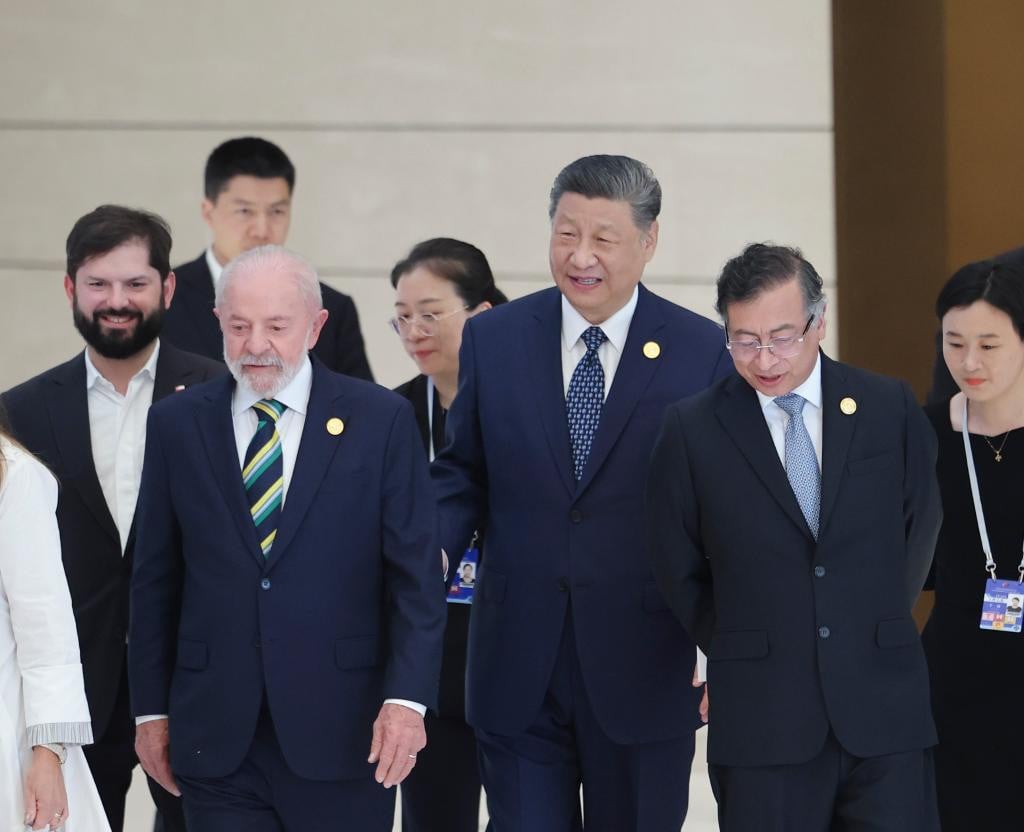
President Xi concluded his speech with a broader vision of a fairer, multipolar world, in which Global South nations play a more active role in global governance. He called for reforming international institutions, defending true multilateralism, and resisting division and domination by any single power.
Quoting an 11th-century Chinese poem and a Latin American proverb, President Xi celebrated the enduring value of friendship. “No matter how the world changes, China will always stand by LAC countries as a good friend and a good partner,” he added.
The Fourth Ministerial Meeting of the China-CELAC Forum marks a milestone in deepening ties between China and Latin America. With President Xi’s new five-point plan, the partnership appears poised to expand its influence on the global stage, grounded in mutual trust and a shared commitment to peace, development, and justice.




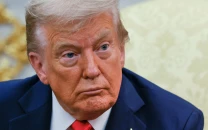

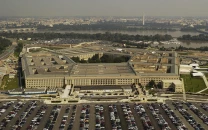













COMMENTS
Comments are moderated and generally will be posted if they are on-topic and not abusive.
For more information, please see our Comments FAQ